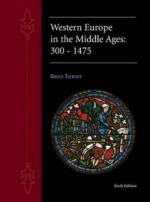|
This section contains 2,872 words (approx. 10 pages at 300 words per page) |

|
Ancient Roots. Textbooks and histories have often called the Early Middle Ages an age of Platonism. Yet, from the Carolingian Renaissance of the ninth century through the School of Chartres in the twelfth, other philosophical traditions—including Stoicism and Aristotelianism —were influential as well. For these reasons it is best to consider early medieval philosophy as a continuation of Greek and Roman philosophy.
Platonism. Not many of Plato's writings were known in the Middle Ages. In fact, the only Platonic dialogues available to western European scholars were the Meno, the Phaedo, and a part of the Timaeus, and they became available only in the twelfth century. While the Meno and the Phaedo were known in Paris, they do not seem to have been widely used. The Timaeus was studied with the aid of a commentary...
|
This section contains 2,872 words (approx. 10 pages at 300 words per page) |

|




